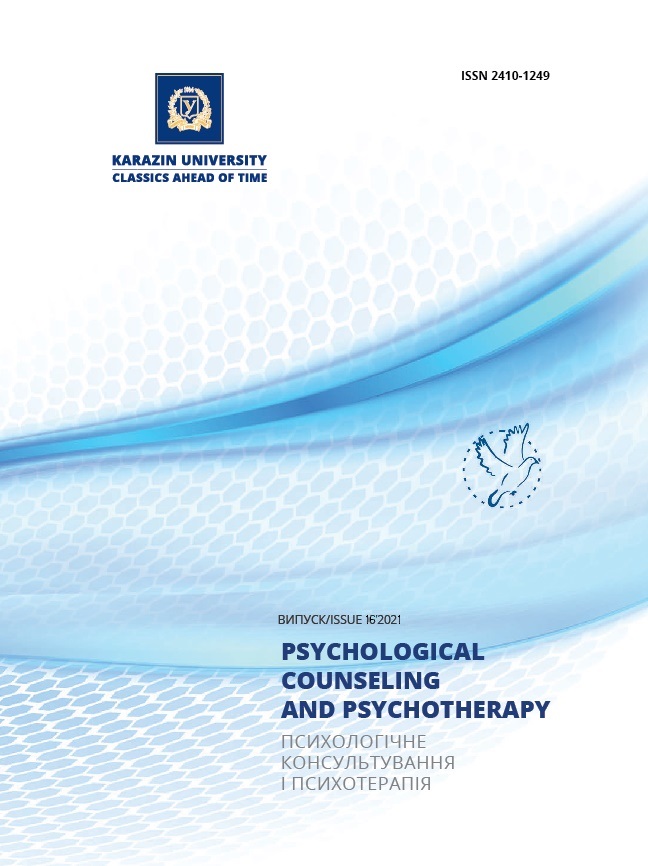Когнітивно-поведінкова модель клінічного прагнення до губристичної переваги
Анотація
У статті представлені результати клінічного прагнення до переваги, що передбачає: постійне прагнення домінувати у конкурентній боротьбі та досягати результатів діяльності, що перевершують показники інших людей або груп людей, залежність самооцінки від успіху у просуванні до мети, реалізація якої надає перевагу перед конкурентами; ігнорування негативних наслідків конкурентної боротьби - конфліктів, емоційного вигоряння, психосоматизації та актуалізації почуття заздрощів. Показано, що циклічна модель клінічного прагнення до переваги складається з: 1) залежності самооцінки від досягнення переваги над іншими; 2) вибору мети досягнення переваги; 3) вибору об'єкта для порівняння/конкуренції; 4) негнучкі стандарти досягнення переваги - «правила змагальності» 5) когнітивними спотвореннями та 6) поведінкою, пов'язаною з суперництвом та досягненнями, що дають можливість порівнювати себе з іншими, 7) досягненням або недосягненням переваги або відмовою від порівняння чи конкурентної боротьби, що призводить до 8) нарцисичним почуттям. Ця модель розглядає як основу когнітивно-поведінкової терапії клінічне прагнення до губристичної переваги.
Завантаження
Посилання
Fomenko K.I. (2018a). Psychological assessment of Narcissistic-Self. Visnyk KhNPU. Psichologia, 58, 105-117.
Fomenko K.I. (2014). Interconnection of Narcissism and hubristic motivation of students. Psychological perspectives. 23, 308-318. (in Ukrainian).
Fomenko K.I. (2018b). Psychology of hubristic motivation: Phenomenology, Structure, Determination. Kharkiv: KhNPU (in Ukrainian).
Igan S. J., Yuid etc., Shafran R., Anthony M.M. (2021). Cognitive behavioral therapy of perfectionism. M.: Scientific World. (in Russian).
Ilyin Ye.P. (2014). Psychology envy, hostility, vanity. Sankt-Peterburg: Piter. (in Russian).
Muzdybaev K. (2002). Psychology of envy. Psychological journal, 6.8-50. (in Russian).
Shafran R., Cooper Z. & Fairburn C.G. (2002). Clinical perfectionism: a cognitive-behavioural analysis. Behaviour research and Therapy, 40. 773 – 791.
Shafran R., Egan S.J. & Wade T.D. (2010). Overcoming perfectionism: a self-help guide using cognitive-behavioural techniques. London: Constable & Robinson.
Klein M. (1997). Envy and gratitude. The study of unconscious sources. Moscow. (in Russian).
Kozeletsky Yu. (1991). Man multidimensional (psychological essay). Kyiv: Lybid. (in Russian).








